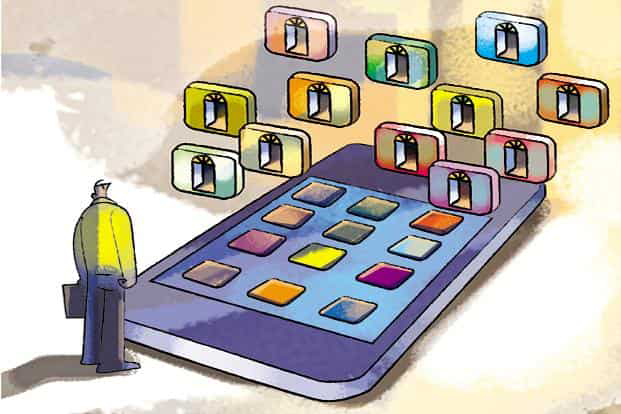You are here
Careful with the sudden profusion of apps
By Jean-Claude Elias - Apr 16,2020 - Last updated at Apr 16,2020

Photo courtesy of livemint.com
Social distancing is one of the good habits we have come to adopt because of the Covid-19 threat. Along with frequent handwashing and wearing a mask in public, it is a direct, obvious precaution that is to help contain the pandemic.
What about also being careful with the countless software applications that have emerged since the beginning of the confinement? Not to mention the updates and the functionality that have been added to already existing software.
Last March 23, the New York Times wrote: “Big Tech could emerge from coronavirus crisis stronger than ever. Amazon is hiring aggressively to meet customer demand. Traffic has soared on Facebook and YouTube. And cloud computing has become essential to home workers.”
New software has always been a concern; for many reasons. First are the bugs. Rarely has a first version of an application come without bugs – these unintentional but nevertheless annoying, frustrating programming errors. Developers often label their first ready-to-release version as “beta”, as a kind warning to users, telling them that there may be errors in the software, pending more global testing.
In these times of understandable psychological stress, even updates to existing programmes can be scary. Just a few days ago a number of users has their Microsoft Office Suite (Word, Excel, etc.) blocked because of an update in their Windows system. They were asked to re-activate Office (i.e. to re-enter the purchase key) so as to make Office work again.
Normally once you have entered the key after purchasing the product you never need to re-enter it again. Those who had lost the key, simply because they had been using the otherwise legally purchased product for many years, had to contact Microsoft support to solve the unexpected, rather unusual problem.
We have all heard about the upcoming “social contact tracing apps for smartphones”. They are supposed to help track those who are certainly or even potentially virus bearers, through their portable handset. Last week, in a news thread relayed by the French newspaper Le Figaro, one could read that Apple and Google had announced a joint effort to develop such apps, with the aim of making them more performing, easier on battery consumption and better at exchanging information between iPhones and Android models.
This mere announcement has immediately raised concerns, more particularly in Europe, about the risk of the “Big Brother” syndrome, of possible technical failures (breach of security, hacking,…) and of communication errors.
Videoconferencing app Zoom usually requests you to enter two numbers to join an online meeting: the meeting number and a password. There is an option in the application that lets you, if you prefer, disable the password requirement. However, with the few cases of hacking of meetings that have taken place end March, Zoom has strongly recommended users to maintain the password option and not to disable it. All this, of course, is caused by the dramatic increase in using Zoom, as well as other videoconferencing software, during this stressful time of confinement.
So how to you trust apps, especially the very new, those that propose to help you cope with the confinement, to entertain you while at home or to make your grocery or drugstore orders easier? Do you simply go to Google Play or App Store and read the users’ reviews? There is no simple answer to this question.
In normal times, you would wait till the new application is well tested, till you have heard only good reports about it and till you know for sure that tens of thousands of people are happy with it and have found it safe. This usually takes months! By then the whole confinement situation may be over – which of course would be good news anyway… Who then would need “confinement assistance apps”?
My attitude towards new apps has changed very little in these trying times. I am still extra careful, whether Covid-19 or not. And though I happen to be a tech-head, if only by trade, when not for the love of technology, I don’t easily trust new apps. I’d take my time.
Related Articles
In the announcement made last Monday by the Minister of State for Media Affairs Amjad Adaileh, computer shops and retailers were among the b
AMMAN — The Cyber Crime Unit (CCU) on Saturday called on citizens to follow the updates from Facebook and log out of all accounts and log in
















